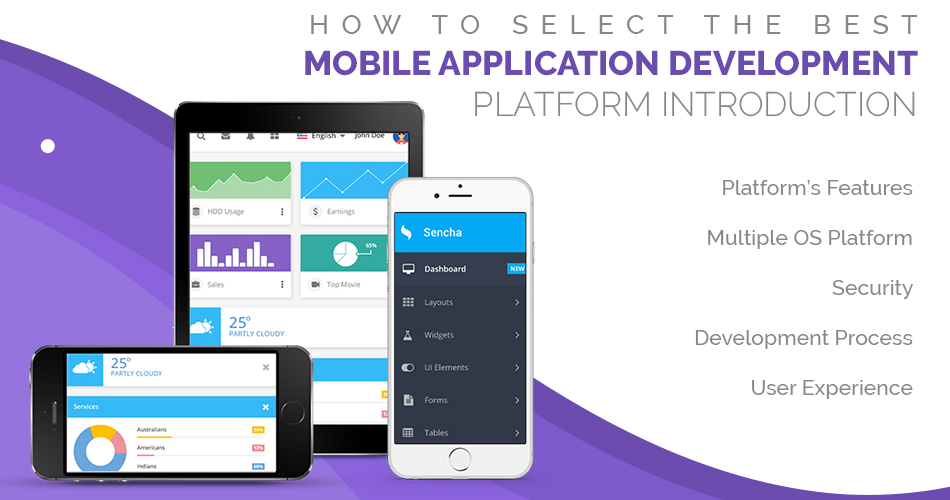How to Select the Best Mobile Application Development Platform

There are three types of mobile app development platforms- Native, Web and Hybrid platform. All three platforms have their own properties, features, and limitations. But yet the question comes- which one is better? A brief comparison all of you need to find the best choice is made below-
Native App Platforms
It comprises particular hardware platforms as the operating system. Native applications are developed in a specific programming language like java on Android platform and objective-C on iOS platform but language code can’t be ported to another platform. Thus, the Native app platforms have many appreciable features, given here-
- On Native platforms, an Android or iOS app development process can take full optimization while interacting with internal features of the mobile device.
- Apps on Native platform provide fast performance and high reliability.
- The platforms provide fast functionality than any other; besides, the user experience is of optimal level.
- On these platforms, an application is easier to develop and work best for developers
- These platforms provide best graphics and APIs.
- Native apps have least glitches and results in smooth performance.
- Push notifications are available with great immediately, unlike with a web app platform.
- There is no need to update multiple codes; so, the developers only have to update by providing support for a solitary platform.
It is obvious that nothing is perfect at all so some limitations also take place like; the Native app cannot be changed in other frameworks and not enables to work on the web browser. Somewhere the high cost of development produces hassles to the iOS or Android app Development Company.
Web App Platforms
Many applications are developed using web platforms to run on web browsers. The web supporting languages; HTML and CSS, JavaScript etc are easily compatible with the various operating systems. Some huge advantages of web app platforms are given here-
- Provide easy maintenance and manipulation for compatibility
- Web platform based app doesn’t require approval by app stores and can be launched according to the developer’s preference.
- Fast app update ability without updating on app stores
- Extensive variety of service possible due to HTML5
- No framework/code restrictions and much cheaper than any other
- Developers don’t need to give a cut of the profit from downloads to app stores
- Availability on any web browser
It also has some limitation as it runs only on the web browser and provides a limited scope for accessing. Besides, offers slow performance due to the internet requirement.
Hybrid App Platforms
Hybrid app platforms often called cross platforms, are referred to the frameworks that both the Native and web application can be developed on. Those apps have Native features and are able to perform on multiple platforms. Facebook is the foremost example of hybrid applications. Some important features of hybrid platforms are given here-
- Provide an incorporation of the web and Native app development
- On Hybrid platform, you get offline availability for certain features
- Perform on multiple platforms implementing single codebase and framework
- It is faster and cheaper to manufacture hybrid apps than creating multiple apps
- Hybrid apps are downloadable through app stores
- Better Push notifications
In some way, hybrid app platforms have disadvantages as limited addable features and some features are unusable due to the insertion of web codes.
Summary
You can see that mobile app development platforms come in different size and shape. An app development company should determine the required proficiency and resources of the platform but it would be beneficial to evade the framework that uses a template based application to provide powerful SDKs, code reusability, and flexibility while developing an application.

 Rahul
Rahul






